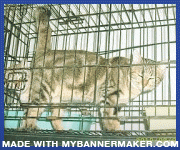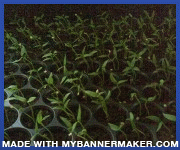Rabbit nutrition
That famous bunny named Bugs may have lived by carrots alone, but real rabbits are a bit more demanding. As a responsible owner, you should know that there are three basic components of your vegetarian pet's diet:
- Hay
- Pellets
- Fresh vegetables
Once you've learned the right kinds and amounts of these foods to offer, meeting your bunny's nutritional needs is as easy as one, two, three.
Rabbits need hay
Heard that hay is for horses? Well, it's just as important for rabbits, too. This non-fattening food is essential for the proper functioning of your pet's digestive system and reduces the danger of hairballs. Unlimited fresh timothy, grass or oat hay should be available to your rabbit at all times, so be sure to fill your pet's hay rack every morning so he can nibble throughout the day. Whatever kind of hay you choose, watch out for any mold or spoilage. Fresh hay smells sweet and is light green in color.
Rabbits need pellets
Your bunny will also need a ration of good-quality pellets. Opt for a formula with 15 to 19 percent protein and 18 percent fiber. To ensure that the pellets are as fresh as possible, buy only what you'll need for about six weeks at a time. The amount you feed depends on your rabbit's size, age and level of activity. Bunnies under the age of 7 months can have as much as they like; after that, experts recommend 1/4 cup of pellets daily for two- to five-pound rabbits, and up to 1/2 cup per six pounds of body weight for bigger buns. Your pet's food bowl should be of the weighted metal or sturdy ceramic variety.
Rabbits need fresh vegetables
Fresh vegetables make up the third component of your pet's diet. He'll appreciate a variety of greens, and they're great for him, too. Good choices include:
- Dark leaf lettuces
- Collard greens
- Turnip greens
- Carrot tops
- Green peppers
- Parsley
- Celery
Experts recommend a minimum of two cups of vegetables per six pounds of bunny; you may need to adjust that accordingly, depending on your pet's size. Be sure to wash all fresh foods first, and make sure everything's chopped up nice and small.
Fresh fruit makes a delicious treat for your pet in limited quantities. We suggest one tablespoon per four pounds of adult rabbit. Try the following:
- Berries
- Apples
- Bananas
- Plums
- Peaches
- Melons
Do not offer your pet bread or other human foods that are high in carbs, as these can cause intestinal problems.
The importance of water
Rabbits are big on water, and some can drink almost a quart a day. Your pet should have access to fresh, clean water at all times. A bottle that attaches to the side of the cage works best, and be sure to fill it daily.
If you provide a high-quality diet as outlined here, there's no need for vitamins or other additives. And your pet has a very unique way of supplementing his diet. Do not be alarmed if you see your rabbit eating his feces. This may seem strange or even unsanitary to you, but it is perfectly normal and, in fact, perfectly healthy! The small, soft pellets contain nutrients that aid in digestion.















No comments:
Post a Comment